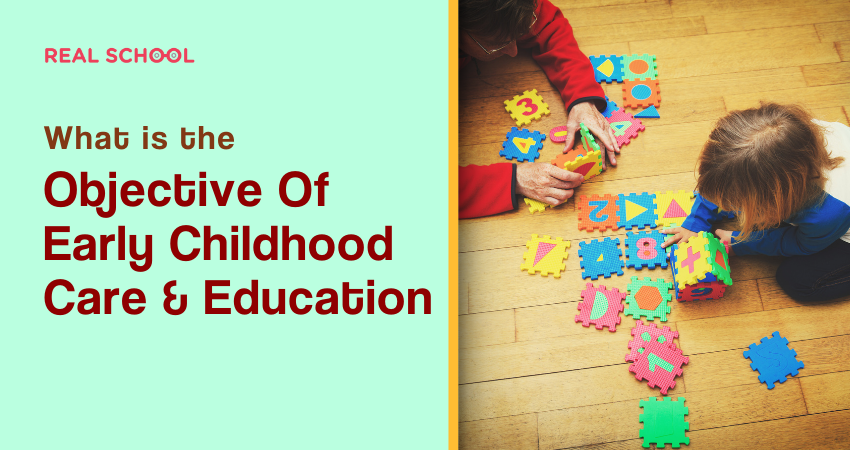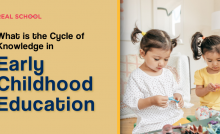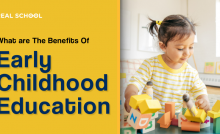What Is The Objective Of Early Childhood Care And Education


The early years are where the threads of potential are initially weaved in the magnificent fabric of education. The fertile soil in which these seeds of potential are cultivated is Early Childhood Care and Education (ECCE). It is a basic stage that strives to build young brains by fostering their physical, emotional, social, and cognitive development. We delve into the objectives of Early Childhood Care and Education (ECCE) in this inquiry, understanding its vital role in molding not only individual lives but also the future of society.
The Essence of Early Childhood Care and Education
Holistic Development:
The primary objective of ECCE is to promote holistic development in children. It seeks to ensure that children grow physically, emotionally, socially, and cognitively in a balanced manner.
School Readiness:
ECCE prepares children for formal schooling by introducing them to routines, social interactions, and foundational academic skills, giving them a head start in their academic journey.
Emotional Well-being:
Another vital objective is to foster emotional well-being in children. ECCE programs create environments where children feel safe, secure, and valued, allowing them to develop positive self-esteem and emotional resilience.
The Role of Educators and Caregivers
Nurturing Environments:
ECCE educators and caregivers aim to provide nurturing environments where children can explore, discover, and express themselves freely, facilitating their emotional and cognitive growth.
Individualized Attention:
One of the core objectives is to offer individualized attention to each child. Educators tailor their interactions and activities to meet the specific needs and interests of each young learner.
Benefits of Early Childhood Care and Education
Lifelong Learning:
By igniting a passion for learning from an early age, ECCE seeks to instill a lifelong love for acquiring knowledge and skills.
Socialization:
ECCE promotes socialization by encouraging positive interactions and cooperation among children. It helps them develop essential social skills, including empathy and communication.
Community Building:
ECCE programs often foster a sense of community among children, parents, and educators, strengthening the support network for families.
Economic Development:
On a broader scale, the objective of ECCE is to contribute to the economic development of a society by preparing a skilled and knowledgeable workforce for the future.
Also Read: What is a Montessori Preschool Program?
Benefits of Early Childhood Care and Education
Lifelong Learning:
By igniting a passion for learning from an early age, ECCE seeks to instill a lifelong love for acquiring knowledge and skills.
Socialization:
ECCE promotes socialization by encouraging positive interactions and cooperation among children. It helps them develop essential social skills, including empathy and communication.
Community Building:
ECCE programs often foster a sense of community among children, parents, and educators, strengthening the support network for families.
Economic Development:
On a broader scale, the objective of ECCE is to contribute to the economic development of a society by preparing a skilled and knowledgeable workforce for the future.
Also Read: How Do You Start Homeschooling For Your Child?
Conclusion
The objectives of Early Childhood Care and Education go beyond academics; they encompass the nurturing of young souls, the fostering of lifelong learners, and the building of stronger communities and societies. It is a stage where dreams are nurtured, potentials are realized, and the foundation for a brighter future is laid. ECCE educators, caregivers, and parents all play pivotal roles in this journey, working together to ensure that every child’s early years are filled with care, love, and opportunities for growth. As we invest in our youngest generation, we sow the seeds of success, knowing that they will one day bloom into leaders, innovators, and compassionate individuals who shape the world for the better. Know more – The Real School
FAQs: Answering Common Questions
1. What is the ideal age to enroll a child in an Early Childhood Care and Education program?
Answer: ECCE programs often begin as early as infancy and can continue through the early years of schooling, depending on the program and parental choice.
2. How can parents support ECCE at home?
Answer: Parents can support ECCE by creating a nurturing and stimulating home environment, reading to their child, engaging in play-based activities, and fostering a love for learning.
3. Are there different philosophies or approaches to Early Childhood Care and Education?
Answer: Yes, various approaches, such as Montessori, Reggio Emilia, and play-based programs, offer different educational philosophies. Parents can choose one that aligns with their values and their child’s needs.
4. What are the long-term benefits of a strong ECCE foundation?
Answer: A strong ECCE foundation can lead to improved academic performance, better social and emotional well-being, and increased opportunities for success in later life.
5. Is ECCE primarily about academics, or does it focus on other aspects of a child’s development?
Answer: ECCE places a significant emphasis on holistic development, encompassing physical, emotional, social, and cognitive growth, rather than solely focusing on academics.
Recent Posts
What are the Advantages of Online Teaching at The Real School?
In the article -"What are the Advantages of Online Teaching at The Real School?" we…
What is the Full Form of School?: Unveiling the Acronym
The term "school" carries profound significance in the realm of education, representing more than just…
What is Math Full Form?: Cracking the Code
Mathematics, often referred to as "Math," is a subject that elicits various reactions from students…
What is Full Form of Homework?: Decoding Academics
Homework, an integral part of the academic journey, often raises questions about its purpose and…
What is Full Form of Teacher?: Demystifying Education
In the intricate tapestry of education, teachers stand as the pillars shaping the intellectual and…
What is Real Education?: Discovering Its Essence and Impact
The concept of real education is evolving, transcending traditional views that equate it solely with…



